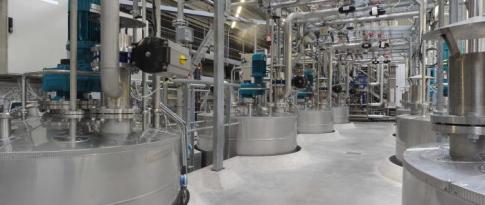30.03.2020
15 minutes of reading
 IFP Group deploys processes on the world market that are as much about recycling plastics, capturing CO2 and producing bioproducts as they are about refining or petrochemicals. Whether they are emergent or mature, all these sectors demand innovations to reduce their environmental impact, improve their competitiveness and move towards the energy transition.
IFP Group deploys processes on the world market that are as much about recycling plastics, capturing CO2 and producing bioproducts as they are about refining or petrochemicals. Whether they are emergent or mature, all these sectors demand innovations to reduce their environmental impact, improve their competitiveness and move towards the energy transition.
The philosophy within the Process Design and Modeling Division is one of risk control when extrapolating to an industrial scale concepts and ideas initially verified on a small scale. This involves defining individual step sequences, dimensioning rules, operating conditions and methods of conduct enabling us to confidently begin prototyping and industrializing new processes.
To do so, the Division is supported by multidisciplinary fundamental research, ranging from kinetics to hydrodynamics, via matter and energy transfers, using data obtained using original experimental methods and structured by dedicated mathematical approaches. This research must meet the permanent challenge of industrial relevance.
The articles in this issue illustrate this constant back-and-forth interaction between science and operational reality facing the Division's researchers on a daily basis.
Have a good reading!
Pierre Porot
Process Design and Modeling Division Director
Extrapolating ethanol-from-biomass production technologies
The industrial production of ethanol from lignocellulosic biomass was demonstrated by the Futurol™ projecta.
A world first for energy integration: heat and gas at every level
In partnership with Arol Energy, a new methanization-based biogas purification technology has been developed to extract methane (CH4) and inject it into the natural gas
In trickle bed reactor simulators, hydrodynamics count!
Improvements in chemical processes are regularly achieved as a result of the introduction of new internal geometries within reactors.
Mix between kinetic and machine learning models
Having access to increasingly precise and robust extrapolation models to be able to predict certain propertiesa remains a major challenge for chemical processes industry.
Process efficiency: a matter of integration!
In order to optimize the use of very expensive installations, the development of industrial processes needs to take into account integration between units, both for developments relating to mature
Looping the chemistry for clean energy
Chemical Looping Combustion (CLC) is an airless combustion technology using oxygen carrier materials (OCM), which circulate between an oxidation and a












